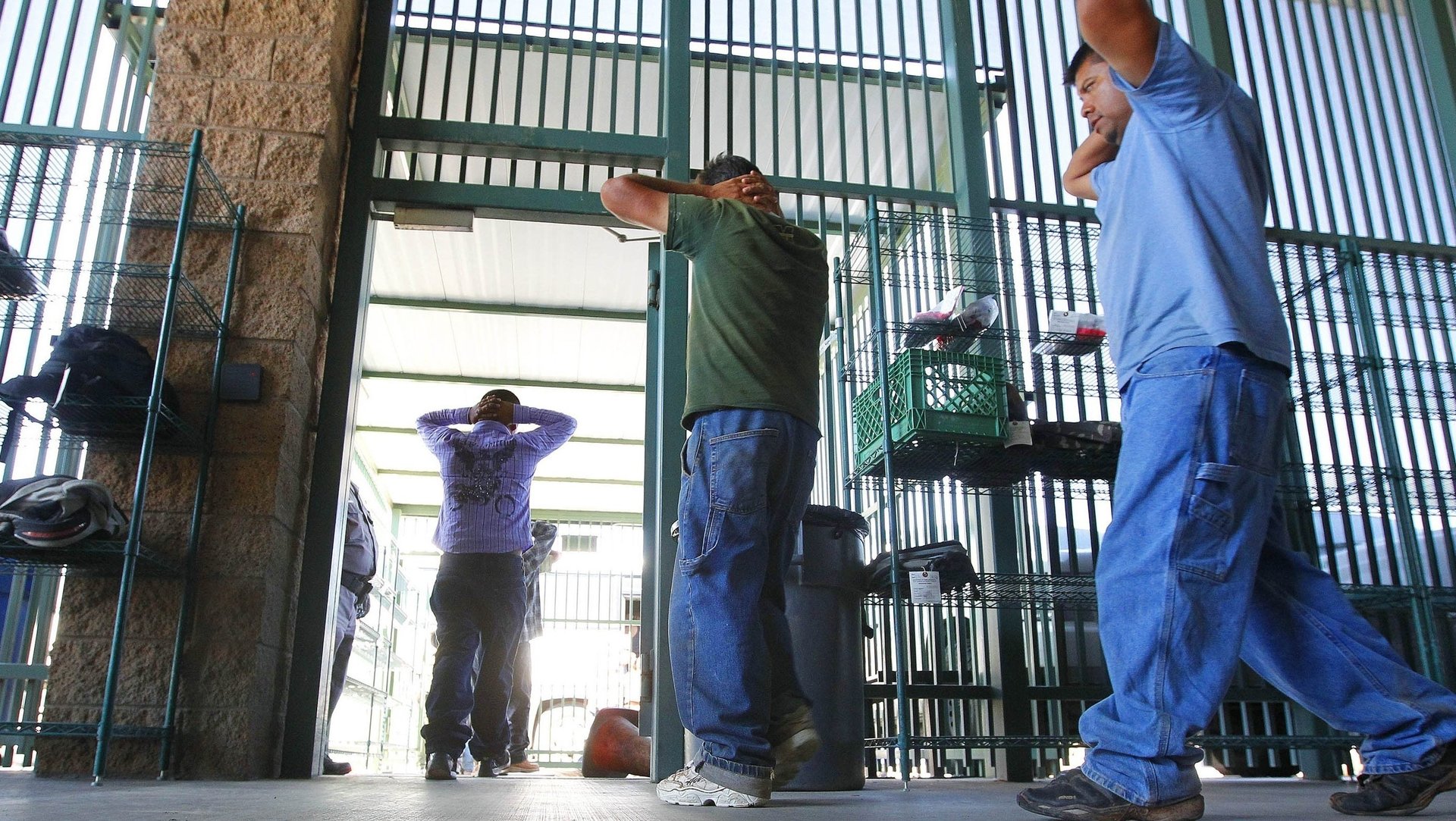The American private prison industry has scored another big win with the US government
The American private prison industry just scored another big win.


The American private prison industry just scored another big win.
US secretary of Homeland Security Jeh Johnson said in August that his agency would review its use of private-prison operators in running immigration-detention centers, which have been criticized over inhumane conditions and abuse. That review, by the department’s advisory council, will be presented Dec. 1, and it concludes with a big recommendation: that Immigration and Customs Enforcement (ICE) continue using private-prison companies.
“Fiscal considerations, combined with the need for realistic capacity to handle sudden increases in detention, indicate that DHS’s use of private for-profit detention will continue,” reads a draft of the report obtained by Quartz.
Those findings are dismaying, if not exactly surprising, to activists like Kathryn Johnson of the American Friends Service Committee, an advocacy organization. Even though the Department of Justice announced plans in August to begin phasing out private prisons, the federal Bureau of Prisons has since then renewed contracts with private-prison operators.
“What’s disappointing is that the council didn’t address the reasons for which moving away from private prisons would be hard,” Johnson says.
Chief among those reasons is that the US detains thousands of immigrants every day, including families and those seeking asylum. In October, ICE was holding more than 40,000 people in detention, more than ever before, the Wall Street Journal reported. According to the DHS report, a whopping 65% of those detainees are being held in privately run facilities, 25% in county jails or other local facilities, and just 10% in detention centers run by the government. The agency is projected to be detaining as many as 47,000 immigrants by June 2017.
The biggest problem for activists is the same as in the use of private prisons for criminals: profit motive. “The profit made off of the detention of immigrants creates an incentive for those reaping the benefits to lobby for policies that maintain or expand detention,” Johnson said in a statement.
The DHS report does point out that privately run facilities need more government oversight, and that immigrant detention in county jails, where conditions are particularly bad, should be reduced. “Continuation should come with improved and expanded ICE oversight, and with further exploration of other models to enhance ICE control, responsiveness, and sense of accountability for daily operations at all detention facilities,” it says.
“We welcome the opportunity to work closely with DHS and ICE to implement the [council’s] recommendations for additional oversight and monitoring which will allow us to continue advancing best practices,” Pablo Paez, a spokesperson for the GEO Group, one of the two biggest private prison companies, said in a statement sent to Quartz. “As a matter of long-standing policy, GEO does not take a position on or advocate for or against any immigration policies such as the basis for an individual’s detention or the length of detention.”
Seeing through those recommendations (or not) will likely fall to president-elect Donald Trump, who has said he supports prison privatization. Trump’s proposed policies of immigrant deportation could also send the numbers of detainees soaring even higher.
This post has been updated with a statement from the GEO Group.